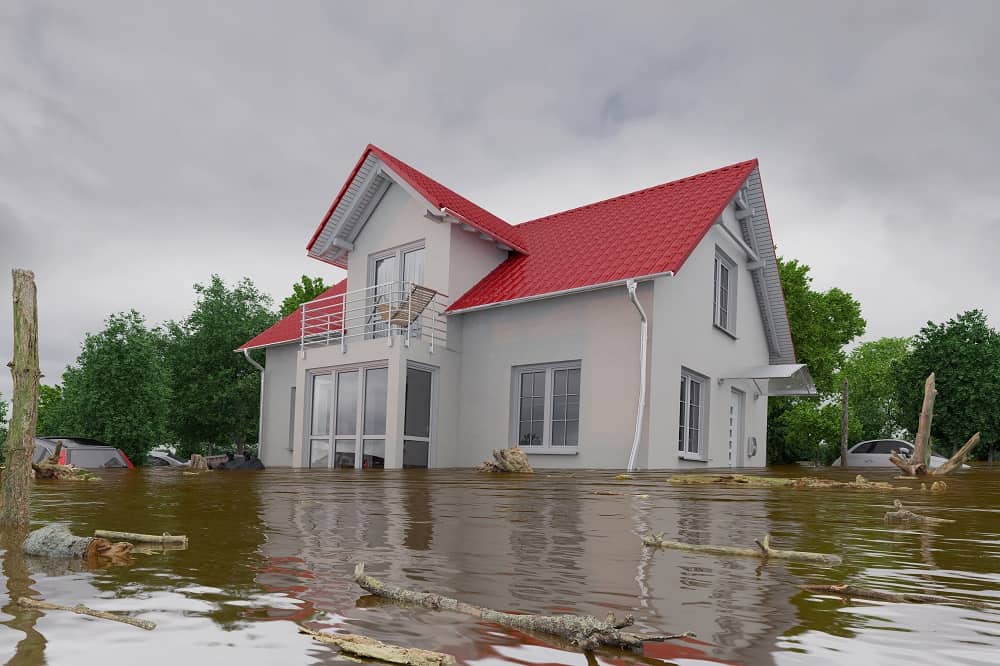Unfortunately, floods are one of the most common natural disasters people must face, partially because they can strike anywhere at any time. Whether flooding is caused by storm surge in coastal communities, swollen rivers, or flash floods that stem from far off downpours, flooding can lay waste to whole communities in the blink of an eye. Fortunately, water restoration has come a long way, and even the damage done in major flood events can be remediated. The key to recovery from water damage in Fenwick Island, DE, is a quick and thorough response because damage magnifies the longer it goes unabated.
Water damage repair professionals can spring into action immediately after a flooding event, but there are a few things the average homeowner can do as well to expedite the process and ensure that restoration is completed on the proper timeline. You may be anxious to return to your home and survey the damage, but there’s a safe, deliberate way to do that without putting yourself in danger. Keep reading to learn about five important steps you should take after facing a flood.
Contact a Water Damage Restoration Company
If you know your home was flooded, it’s a good idea to put yourself at the front of the line with water removal and restoration companies by calling them, even if you haven’t even been able to survey the damage at your property. The key to water damage restoration is immediacy, and the quicker you can get professionals to work on your project, the faster you’ll be able to return to your home. Responding quickly will also help limit the extent of the damage. Much of the toll flooding takes on structures is the result of time and exposure. For example, mold growth begins within 24-48 hours of immersion, so it’s important to remove water and dry structures as quickly as possible.
Put Safety First
When you do return to your home, make sure that you do it with safety as your priority. Floodwaters are notoriously dangerous because they can conceal unexpected hazards, such as broken glass or potholes. They also contain chemicals and pathogens that should never come in contact with the skin. There may also be electrical hazards present if your electricity was on when the flood occurred. Therefore, it’s important that you adhere to all safety precautions when approaching a flooded home. Your life could depend on it.
Check for Dangerous Situations
When you’re able to return to your home safely, you should survey the scene to make sure no additional dangers are lurking. For example, check for the smell of natural gas. A broken line could create an explosive situation. Look for sparks from electrical outlets because that can be a sign that it’s not safe to approach. If you see these hazards, contact the utility company for assistance immediately. Also, be aware that wildlife may have followed floodwaters into your home and yard, so stay aware of the presence of any dangerous animals.
Collect Important Paperwork
Once you’re able to confirm the house is safe and all hazards have been mitigated, you should attempt to collect any important paperwork that may have been left behind. Documents such as birth certificates, Social Security documents, banking records, and insurance paperwork should be secured. If the documents have become wet, you can preserve them by placing them in a freezer or otherwise drying them.
Salvage What’s Important
In addition to documents, there may be things in your home that you’d want to salvage, such as photographs, keepsakes, and furnishings. While some large pieces of furniture can be treated by the water damage restoration company, you can also secure some smaller items and begin the cleaning process yourself. Just remember that everything the water touched must be thoroughly cleaned.
Once you’ve done these things, you must simply await the arrival of the service performing your water removal in Fenwick Island, DE. They’ll make sure that all moisture is removed from the house before the cleaning and restoration process begins. To learn more about the things you should do in the wake of a flood, contact United Restoration, Inc., at (443) 727-3307.


Recent Comments